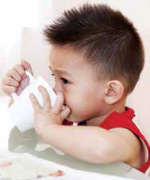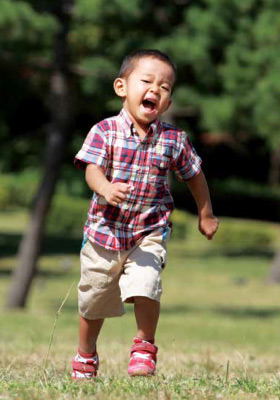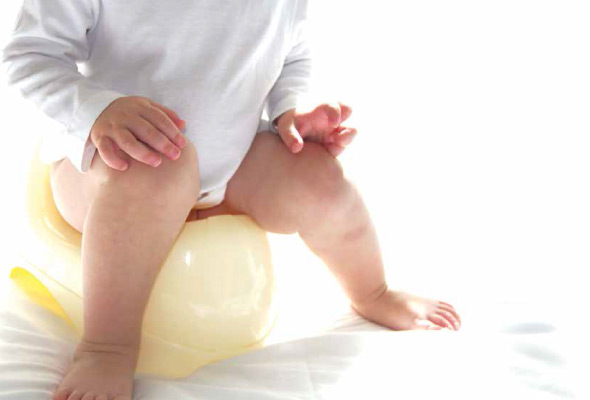Almost everyone gets constipated at some point and it’s a common condition amongst children. According to the American Academy of Pediatrics, constipation is described as a delay or difficulty experienced during defecation, is present for two or more weeks, and causes significant distress to a child.
Usually, a child who has a bowel movement fewer than three times a week (or less often than he typically does) is constipated. Additionally, they may show a combination of other symptoms:
- Hard, dry and small stools
- Stomach pain and bloating
- Bleeding with bowel movements
- Pain and difficulty during stool evacuation
- Soiling accidents
Constipation in your child can be caused by various factors, more commonly:
- Withholding stool because of:
- stress over potty training
- unwillingness to use the toilet he’s not familiar with
- fear of a painful bathroom experience
- Inappropriate toilet seat size – Dangling of both legs and the feeling of falling into the bowl does not allow proper relaxation of the anal sphincter required for effective stool evacuation.
- A diet that’s low in fibre or doesn’t include enough liquids (or both).
- Lack of physical activity.
- Side effects of certain medications (i.e. high-dose iron supplements or narcotic pain medication).
Soiling
Medical professionals do not consider stool soiling (in underwear or pants) to be a medical condition unless the child is at least 4 years old. Soiling is involuntary; the child doesn’t do it on purpose
Constipation in Babies
Normal breastfed infants may only have a bowel movement once a week. Other infants just have a slower (but normal) gut, so they don’t evacuate their bowels very often. Occasional hard stools are also very common and it doesn’t always mean your child is constipated.

If your child is constipated, these strategies may be helpful:
- Prepare plenty of fresh fruits and vegetables (i.e. prunes, apricots, pears), high-fibre cereals, whole grain breads, and a variety of beans and other legumes. Foods containing probiotics, like yogurt, can also promote good digestive health. Omega-3 fatty acids have also been known to promote healthy bowels (i.e. sardines, walnuts, soybeans).
- Encourage physical activity and accumulate at least 30 minutes of moderate intensity exercises a day (e.g. brisk walking, running, cycling). Younger children (infants) can get more exercise by having more ‘tummy time’ or you can help to massage their stomach. Moving the body keeps the bowels moving too.
- Give children aged 2 to 3 years small amounts of plain water up to 1 to 2 glasses and for 4 to 18 years old, 6 to 8 glasses.

If constipation persists despite above measures, you should consult your paediatrician.
- Your paediatrician will be able to recommend suitable medication to alleviate your child’s symptoms as there are various types of medications (e.g. laxatives, stimulants and stool lubricant) available to effectively treat constipation. With proper monitoring, these medications are safe to be used in children.
- Toilet training is often an important component of treatment. Take the advantage of the physiological “gastro colic reflex”. This is a reflex sensation to defecate after having main meals. Encourage your child to sit on an appropriately sized toilet bowl or potty after each main meal while you supervise. The aim of this strategy is to promote regular bowel opening habits. They may be apprehensive at first, but combining it with a bit of distraction and reward strategy (e.g. use “star chart”), it will work eventually in the majority of children.
Two Birds, One Stone
A healthy and balanced diet also helps improve digestive health, provides optimum nutrition, maintain weight and increases your child’s overall health whilst hampering onset of non-communicable diseases (i.e. heart disease, obesity, and kidney failure).
Fortunately, chronic constipation secondary to significant medical conditions (e.g. Short-segment Hisrchprung disease, Hypothyroidism, Hypercalcaemia and Colonic dysmotility) are rarely encountered.
Nevertheless, babies and young children can’t always explain what they’re feeling, so no matter what the symptoms or complications are, if you’re worried about your child’s condition, don’t wait – contact your doctor immediately.






Comments